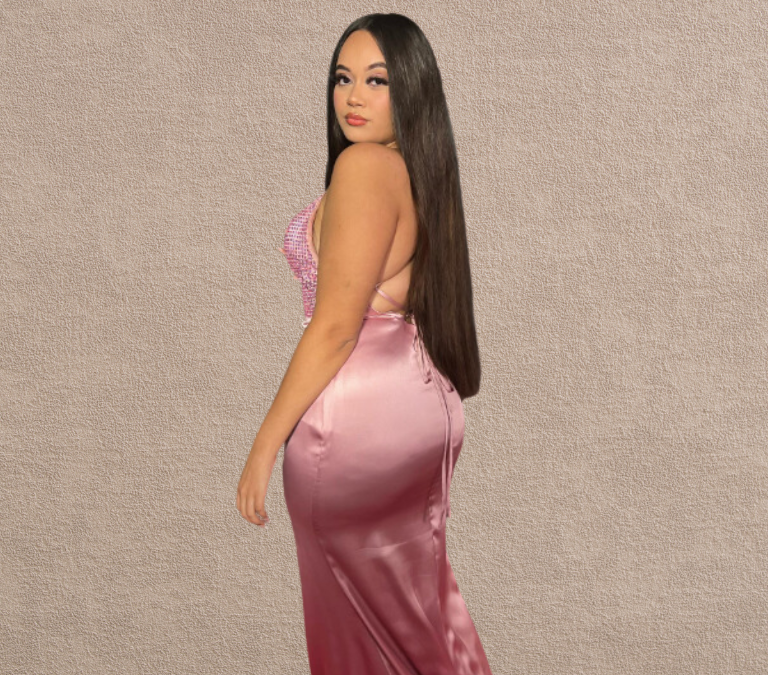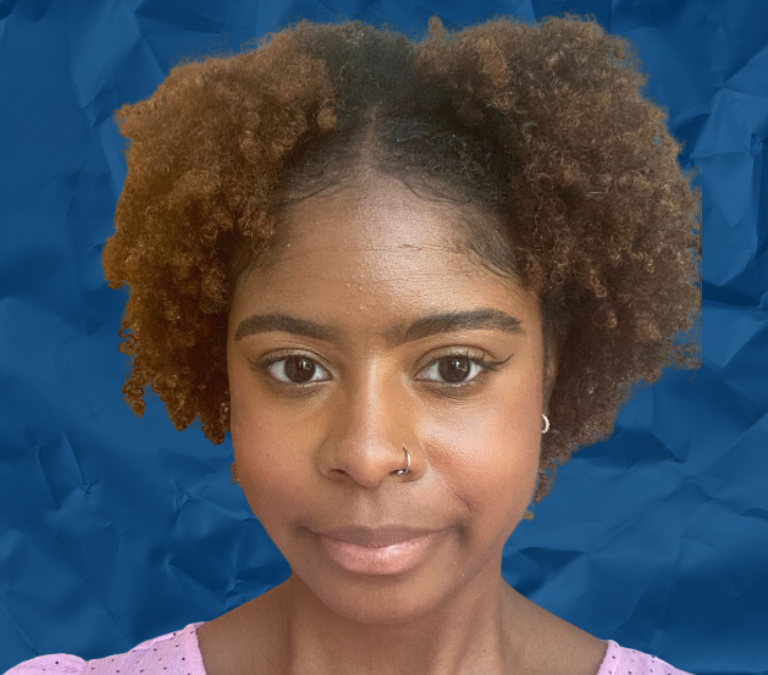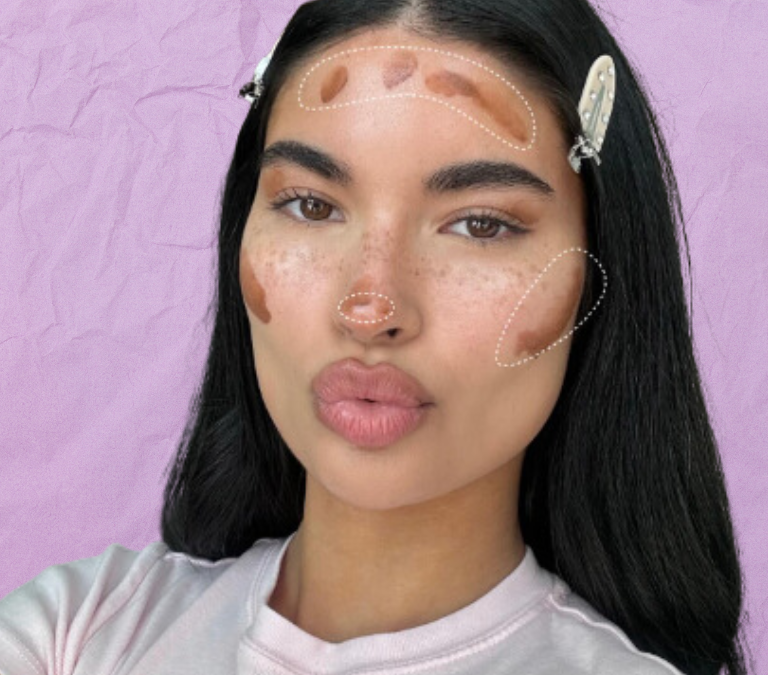by HadassaH. of NappilyNigeriangirl.com
I’d like to share a method I’ve incorporated into my hair care regimen to help me retain length.
My hair had been growing longer, but I noticed that the older parts (the ends) would get dry and were prone to breaking off easily.
Usually at this point I’d trim my hair, but since I decided to challenge myself to grow my hair to waist-length, I decided it was time to add length-retention techniques into my regimen.
Henna and protein treatments had helped strengthen my hair and made it less porous overall, but they didn’t stop my ends from getting dry. And while the LOC method has proved effective in providing daily moisture, I felt I still needed more to reinforce my fine hair and make it stronger so that it could withstand manipulation.
My quest for length-retention techniques led me to the “Indian Oiling Method.” I’ve been consistently using this regimen since 2013 and I’ve made changes along the way to better suit kinky, curly hair of different textures, with the help of feedback from the naturalistas around me.
This regimen is especially useful if you’re suffering from unexplained dryness, brittleness, breakage, hair shed and dullness. (If any of these issues is excessive, please see your doctor.)
Adopting this regimen has really helped my hair by:
- preventing breakage and improving length (I was able to finally grow my fine hair down to my waist!)
- improving elasticity and strength
- improving sheen and softness
- improving moisture retention
- improving styling
Here’s an excerpt from an article revealing Indian hair care practices and products used:
Generally using herbs for healthy hair maintenance (in India) involves some kind of oiling and an herbal wash.
You may also add an herbal rinse. The wash and rinse can be one mixture, or used separately, but together they should contain at least one cleansing agent (such as shikakai or aritha/reetha and one conditioning agent such as amla).
Some Indians also use rice starch as a type of natural emulsifier to bind the herb powders together and make them easier to apply and rinse out.
Indian women tend to oil their hair daily or every other day, and to wear their hair in a single braid or a bun. Very rarely do they wear their hair down.
Why oiling?
Oils are used as a protective conditioner and for treating problems of hair growth and both hair and scalp condition. They can be used daily to protect hair from the elements.
Herbal oils are applied to the scalp daily or pre-wash to treat scalp conditions. More thorough scalp and length oiling is done pre-wash as a conditioner to protect the hair from the drying effects of the cleansing herbs and water.
Herbal oils are chosen depending on condition of the scalp and used either together or separately. They are applied on non wash days in the evening or at least 30 minutes before washing to let the herb act on the scalp.
Pre-wash oiling is done on dry hair at least 30 minutes before washing. Non- wash day oiling can be done on dry or damp (misted) hair depending on how hair reacts to oiling.
Amount used depends on hair length and how much oil the hair absorbs. Start with small amounts and increase as needed.
Post wash oiling is done on dry or damp hair depending on the hair reaction to oils. Only a small amount is used. It helps in detangling and shine, similar to a leave-in conditioner.
Which oils might be right for you?
– Coconut oil
Prevents protein loss from hair during washing.Applied both pre-wash and on the days between washing.
For dry or damaged ends: Wet/ mist the ends of the hair and liberally apply coconut oil, then braid. Let the oil soak in for at least a day.
-Sesame oil
Can be applied between washing but, referred as a pre-wash oil as it has a stronger scent than coconut.
-Mustard oil
It is used more in Northern India, for the scalp and for medicinal body massages. It brings circulation to the scalp due to its mild irritating properties, similar to cayenne pepper. It has anti-bacterial properties.
Do not try to infuse herbs in this by heating as it produces noxious fumes. Applied pre-wash to scalp only. Has a strong scent.
-Amla Oil
Conditioning astringent. Used for hair loss, premature graying, strengthens the roots, reduces dandruff.
Prevents split ends. A small amount is applied to hair and scalp after washing or massaged in pre-wash.
THE METHOD
The regimen has three parts:
1. Shampoo
2. Condition
3. Oil
Step 1: Shampoo
The first step is the shampoo step. If you’ve been oiling your hair everyday till wash day, your hair will be protected from hygral fatigue (water causing your hair to expand) with the accumulated oil.
If this is your first time, apply a lot of oil overnight before shampooing (pre-poo). You don’t need to repeat this step again afterwards.
You can choose any shampoo of choice, but it should be pH balanced, moisturizing and sulfate-free. The original shampoo regimen is a mix of Soapnut, Amla and Shikakai powder. If you don’t have the time or the ingredients to mix, a gentle poo works fine.
My washing mantra is “shampoo the scalp, condition the hair.”
Dilute your shampoo in a bottle or cup with a spout. It makes it easy to access your scalp and get it clean. It also ensures whatever shampoo you’re using doesn’t strip your hair.
You can also wash your hair in braids or twists — whatever helps you get access to your scalp. You can use this opportunity to give yourself a scalp massage.
Don’t worry about your hair strands; they’ll be cleansed by the run off while you rinse.
Optional: After rinsing off the shampoo, mix 3 parts water and 1 part apple cider vinegar, then use it to rinse your hair again. This is meant to acidify your hair and close cuticles so your hair feels smoother. It also helps with dandruff and itchy scalp. So, if this speaks to you, try this out. If you experience unexplained shedding, try brewing black or green tea and using it to rinse your hair. Wait 5-10 minutes before proceeding to conditioning.
Step 2: Condition
Sometimes I skip the conditioning step and proceed directly to the oiling step, especially after I’ve done an ACV rinse. However, conditioning helps provide the slip for detangling and coats the hair with moisturizing ingredients.
I actually prefer deep conditioning instead of the usual conditioning for this step. I use the rinse-out conditioner to co-wash off my deep conditioner instead.
Condition your hair only; try not to let the conditioner touch your scalp. You want to keep your scalp clear.
Blot off excess water and proceed to the next step.
Step 3: Oil
After working with different oil mixes, this formulation has been effective in improving the health of my hair and scalp. You can use any oil you notice your hair loves. Coconut, amla and/or a castor/coconut mix are top choices.
Divide your hair into four sections. Pour a small amount of oil into your palm, rub your palms together to warm the oil, then massage it into your scalp with your fingertips and the rest along the length of your hair. (If your hair feels greasy, you have used too much.) Do this for each section of your hair and scalp until fully absorbed.
I enjoy bending forward while I massage the oil into my hair and scalp. Not only is it easier on my arms, but it increases blood flow to my scalp as well.
After oiling your hair, apply a light leave-in conditioner and then seal your ends with a moisturizing butter. You can then braid or twist your hair till it dries, allowing your natural hair to stretch and the oil to penetrate — and you end up with a fabulous braid or twist out.
Every day afterwards, apply a little oil to your hair and around your edges. You don’t need to apply the oil all over your scalp again unless you are treating any scalp issues. It fits right into your LOC moisture routine as the Oil step.
By the time your next wash day comes, you won’t even need to pre-poo — and with consistency, you’ll likely notice less breakage and shedding, I kid you not!
I once did a wash-and-go after oiling for 3 days straight. When I’m lazy, I usually skip several days, but I had just taken my hair out of a protective style, and it was as brittle as kpekere, so I had to be serious with oiling for 3 days without fail.
For this wash-and-go, I followed all three steps, then oiled for 3 days before wetting my dry hair and applying styling product for my wash-and-go.
Because my hair was happy, I used very little gel for each of the 8 sections of hair I worked with.
No drips.
No crunch.
No product overload.
P.S. Oils are not moisturizers; water is, so while doing this regimen, don’t forget to moisturize after with a water-based leave-in.
Do you regularly oil your natural hair?




